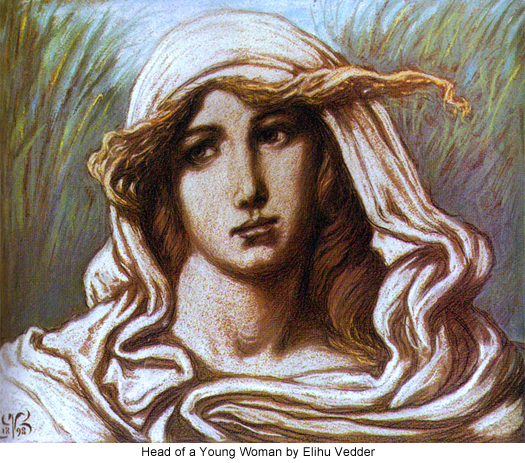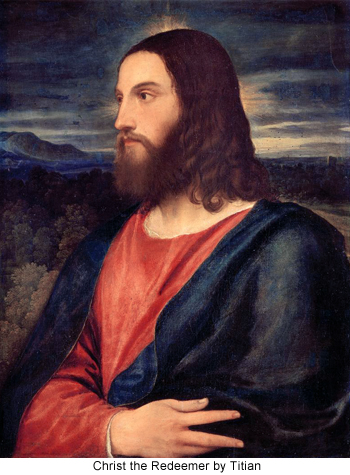
Virtue in Human Life
Intelligence alone cannot explain the moral nature. Morality, virtue, is indigenous to human personality. ~ The Urantia Book, 16:7.1
Virtue is righteousness — conformity with the cosmos. To name virtues is not to define them, but to live them is to know them. Virtue is not mere knowledge nor yet wisdom but rather the reality of progressive experience in the attainment of ascending levels of cosmic achievement. In the day-by-day life of mortal man, virtue is realized by the consistent choosing of good rather than evil, and such choosing ability is evidence of the possession of a moral nature. ~ The Urantia Book, 16:7.6
Moral acts are those human performances which are characterized by the highest intelligence, directed by selective discrimination in the choice of superior ends as well as in the selection of moral means to attain these ends. Such conduct is virtuous. Supreme virtue, then, is wholeheartedly to choose to do the will of the Father in heaven. ~ The Urantia Book, 16:7.10
Virtue is volitional with personality; righteousness is not automatic in freewill creatures. ~ The Urantia Book, 21:3.14
Ambition is dangerous until it is fully socialized. You have not truly acquired any virtue until your acts make you worthy of it. ~ The Urantia Book, 48:7.19
Socrates and his successors, Plato and Aristotle, taught that virtue is knowledge; goodness, health of the soul; that it is better to suffer injustice than to be guilty of it, that it is wrong to return evil for evil, and that the gods are wise and good. Their cardinal virtues were: wisdom, courage, temperance, and justice. ~ The Urantia Book, 98:2.6
Prayers To Strengthen Virtue
"The tamed mind yields happiness. He is the greatest of warriors who overcomes and subdues himself. Restraint in all things is good. He alone is a superior person who esteems virtue and is observant of his duty." ~ The Urantia Book, 131:3.6
"And they who know that God is enthroned in the human heart are destined to become like him — immortal. Evil must be left behind in this world, but virtue follows the soul to heaven.
Man’s friends of the flesh cannot survive death; virtue alone walks by man’s side as he journeys ever onward toward the gladsome and sunlit fields of Paradise.” ~ The Urantia Book, 131:4.7
 Jesus - Teacher of Virue
Jesus - Teacher of Virue
Jesus had little to say about the social vices of his day; seldom did he make reference to moral delinquency. He was a positive teacher of true virtue. He studiously avoided the negative method of imparting instruction; he refused to advertise evil. ~ The Urantia Book, 140:8.21
On this same occasion the Master talked to the group about the desirability of possessing well-balanced characters. He recognized that it was necessary for most men to devote themselves to the mastery of some vocation, but he deplored all tendency toward overspecialization, toward becoming narrow-minded and circumscribed in life’s activities. He called attention to the fact that any virtue, if carried to extremes, may become a vice. ~ The Urantia Book, 149:4.3
Peter's Ordination Sermon - Cherish These Virtues
When Jesus had talked thus to the seventy in the presence of all the apostles and disciples, Simon Peter took them off by themselves and preached to them their ordination sermon, which was an elaboration of the Master’s charge given at the time he laid his hands upon them and set them apart as messengers of the kingdom. Peter exhorted the seventy to cherish in their experience the following virtues:
- Consecrated devotion. To pray always for more laborers to be sent forth into the gospel harvest. He explained that, when one so prays, he will the more likely say, “Here am I; send me.” He admonished them to neglect not their daily worship.
- True courage. He warned them that they would encounter hostility and be certain to meet with persecution. Peter told them their mission was no undertaking for cowards and advised those who were afraid to step out before they started. But none withdrew.
- Faith and trust. They must go forth on this short mission wholly unprovided for; they must trust the Father for food and shelter and all other things needful.
- Zeal and initiative. They must be possessed with zeal and intelligent enthusiasm; they must attend strictly to their Master’s business. Oriental salutation was a lengthy and elaborate ceremony; therefore had they been instructed to “salute no man by the way,” which was a common method of exhorting one to go about his business without the waste of time. It had nothing to do with the matter of friendly greeting.
- Kindness and courtesy. The Master had instructed them to avoid unnecessary waste of time in social ceremonies, but he enjoined courtesy toward all with whom they should come in contact. They were to show every kindness to those who might entertain them in their homes. They were strictly warned against leaving a modest home to be entertained in a more comfortable or influential one.
- Ministry to the sick. The seventy were charged by Peter to search out the sick in mind and body and to do everything in their power to bring about the alleviation or cure of their maladies.
And when they had been thus charged and instructed, they started out, two and two, on their mission in Galilee, Samaria, and Judea. ~ The Urantia Book, 163:4.9
Please see "Morals, Virtue, and Personality" for further study


